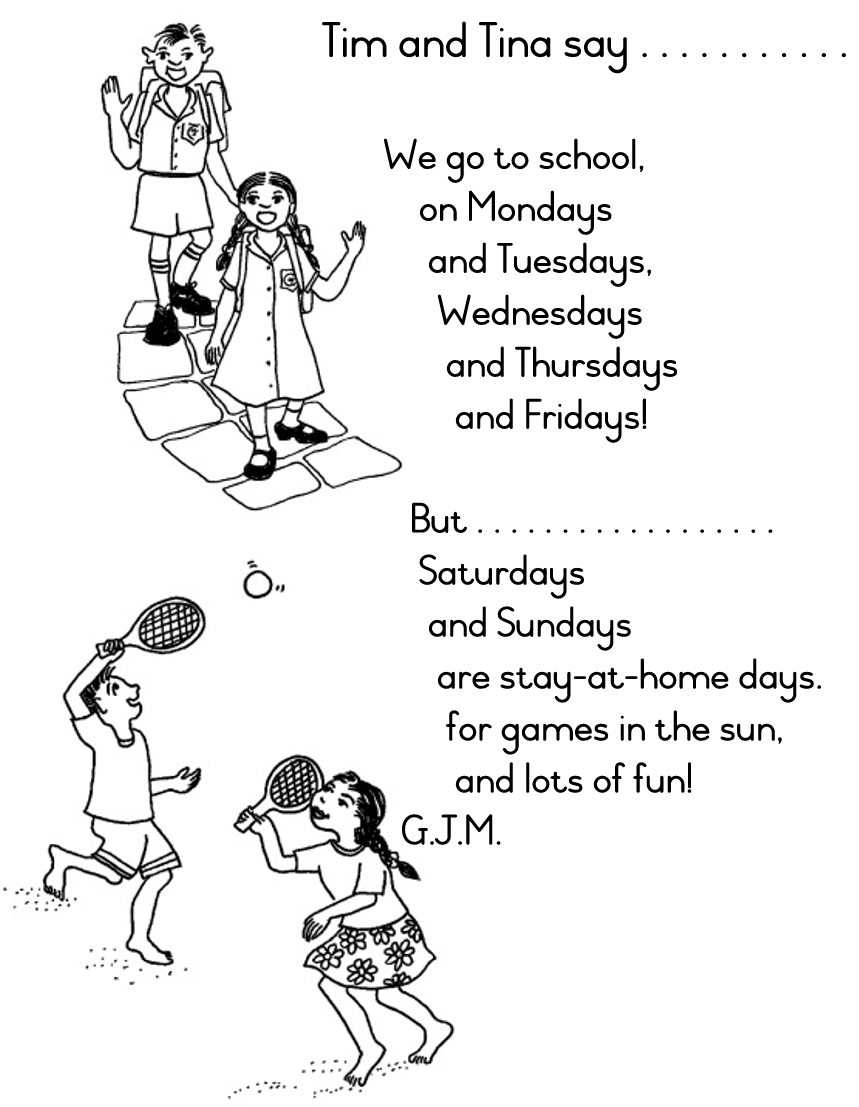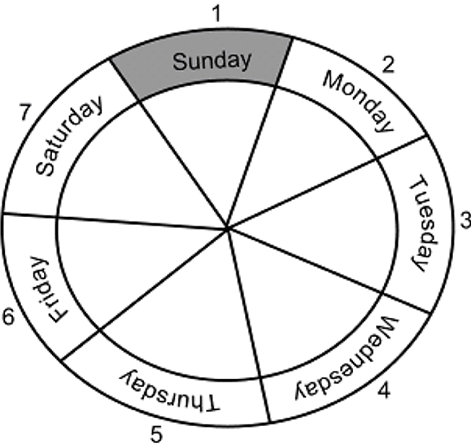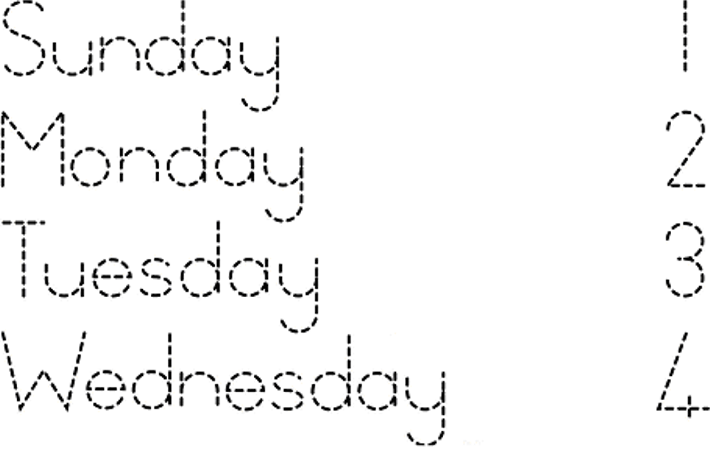| << Chapter < Page | Chapter >> Page > |
The school situation lends itself to much practical work as regards the correct form of greeting someone, as well as politeness when saying "thank you" and "please".
Messages taken by the learners to other educators or to the school secretary can be opportunities for reinforcing the terms for politeness and the correct greeting forms. These can be practised on a daily basis, even in the second language.
LO 2.4
Learners will enjoy making their own sandwiches. This lesson can be preceded by group discussions where learners plan their own sandwiches and decide how they are going to make them (Technology). They need not all make cheese sandwiches. They should be encouraged to bring a variety of fillings and then to talk about them.

| LO 1.1.2 | LO 2.2 | LO 2.6 | LO 5.1.8 |

| LO 1.1.3 | LO 2.5 | LO 5.1.2 | LO 5.1.8 |
This is Tim. Draw Tim.

This is Tina.Draw Tina.


| LO 1.1.3 | LO 2.6 | LO 4.1 | LO 5.1.2 |
Tim and Tina are seven years old.
Mummy has baked a beautiful chocolate cake.
There are candles on the cake.
There are seven candles on the cake.
Tim and Tina count the candles.
1 candle
2 candles
3 candles
4 candles
5 candles
6 candles
7 candles
more!
| LO 1.1.2 | LO 2.2 | LO 5.1.2 | LO 5.1.6 |

Tim and Tina enjoyed their birthday.
There were many friends.
They played games and ate the chocolate cake.
Daddy bought balloons for all their friends.
There were red balloons, blue balloons, yellow balloons and green balloons.
The balloons had different shapes. Some were long, some were round, some were big and some were small.

| LO 1.1.3 |
Learning Outcome 1: LISTENING : The learner is able to listen for information and enjoyment and respond appropriately and critically in a wider range of situations.
Assessment Standard 1.1: We know this when the learner understands short, simple stories:
1.1.2 joins in choruses at appropriate points;
1.1.3 draws a picture of the story.
Assessment Standard 1.5: We know this when the learner shows respect for classmates by giving them a chance to speak, and by listening to them.
Learning Outcome 2: SPEAKING : The learner is able to communicate confidently and effectively in spoken language in a wide range of situations.
Assessment Standard 2.2: We know this when the learner memorises and performs songs and action rhymes with the right intonation, rhythm and pronunciation;
Assessment Standard 2.5: We know this when the learner expresses self in simple ways if given an oral structure;
Assessment Standard 2.6: We know this when the learner pronounces familiar words clearly.
Learning Outcome 4: WRITING : The learner is able to write different kinds of factual and imaginative texts for a wide range of purposes.
Assessment Standard 4.1: We know this when the learner copies familiar words and short sentences.
Learning Outcome 5: WRITING : The learner is able to write different kinds of factual and imaginative texts for a wide range of purposes.
Assessment Standard 5.1: We know this when the learner understands concepts and vocabulary relating to:
5.1.2 number;
5.1.6 age;
5.1.8 sequence.

Notification Switch
Would you like to follow the 'English first additional language grade 1' conversation and receive update notifications?